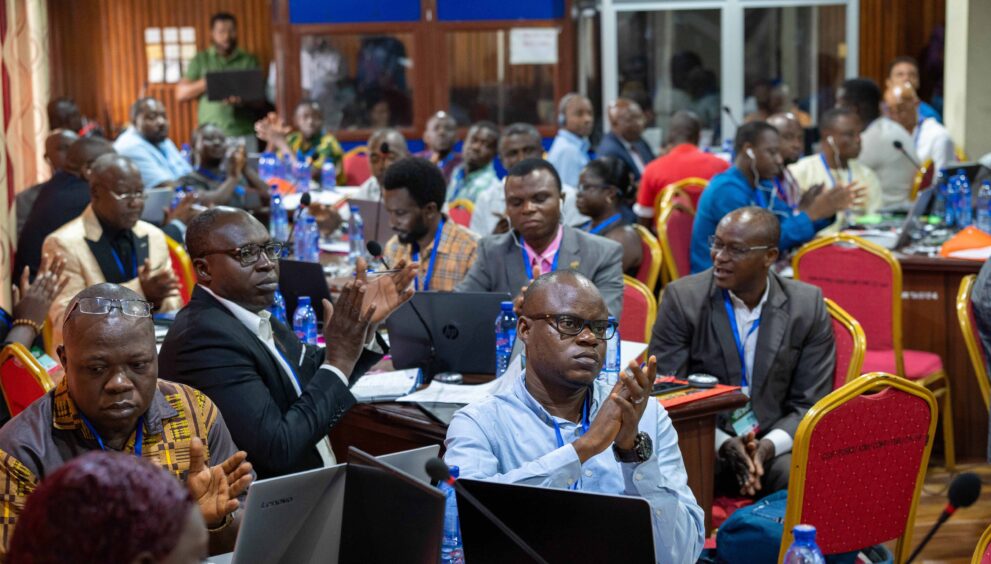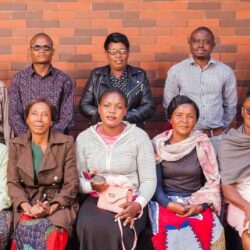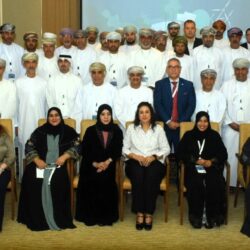The Food and Agriculture Organization of the United Nations (FAO), in collaboration with the Forestry Research Institute of Ghana (FORIG), is hosting a Regional West Africa Workshop on Forest Data and Drivers of Deforestation from June 24 to June 29, 2024, in Kumasi, Ghana. Funded by the Swedish International Development Cooperation Agency (Sida), this six-day intensive training event brings together more than 60 forestry experts from across the ECOWAS region to enhance their capabilities in conducting forest inventories and utilizing geospatial tools for improved forest policies for climate action.
This hands-on workshop is a key component of the project “Global Transformation of Forests for People and Climate: A Focus on West Africa,” a joint initiative by FAO, ECOWAS and Sida, which aims to bolster forest and land management decision-making across the subregion.
The event was opened by Dr Sulemana Nelson Nyadia, Deputy CEO, Forestry Commission of the Ministry of Land and Natural Resources highlighting the importance of biodiversity and vibrant productive ecosystems for societies underpinning key sectors such as agriculture, fisheries and timber industry: “With the increased levels of deforestation and forest degradation in Ghana’s forest reserves …, it is critical for available information on forest resources to be updated periodically through national inventories… We recognize that this is an ambitious agenda. What is required is sustained and bold leadership from all stakeholders, and the determination to move from commitment to action and results on the ground.”
In a welcoming statement Dr. Gouantoueu Robert Guei, the Coordinator of the FAO Subregional Office of West Africa and Mr. Arslen Bounemra, the FAO Ghana Representative, highlighted the crucial role capacity development and collaboration plays in ensuring effective forest and forest data management: “Africa faces many challenges and bears the brunt of the effects of climate change, even though the continent contributes only 1.8% to global greenhouse gas emissions. This training will equip the participants with the most up to date digital and geospatial tools for forest data collection and analysis, and for the above ground biomass estimation model through an innovative approach… This will be crucial in strategic informed decisions on sustainable forest management both at national and regional levels.”
The overall objective of the workshop is to enhance regional knowledge on the state of forest ecosystems their possible threats. Participants will gain advanced skills in forest inventory design, data collection, and analysis using innovative technologies. The workshop also aims to foster collaboration and knowledge exchange among West African countries, promoting best practices for monitoring forest resources at national and regional scale.
for forest management policies in the region. Participants will also learn about new platforms for storing and processing field inventory data, such as FAO’s Open Foris Arena and Arena Mobile, and will develop their capacities in using these mobile data collection tools in the field.
Building on the capacity development activities implemented in 2023, participants will engage with forest inventory technicians on matters relevant to national and regional forest inventory and mapping. This workshop builds on the initial online training activities first introduced by the project in 2020 and 2021. Participants will gain insights into the development of NFI designs in West Africa, demonstrate proficiency in utilizing cutting-edge data collection technologies, and understand the development methodology associated with regional biomass maps.
While discussing the event further Mohamadou Aw, FAO’s Programme Officer mentioned: “This workshop represents one of the most significant milestones of the entire project. It is the result of more than 5 years of dedicated efforts and collaboration, bringing together forestry experts from across West Africa to enhance their skills and knowledge. This workshop embodies the essence of our mission, fostering regional cooperation and building the capacity needed to protect and sustain our precious forest resources for future generations.”
About the project
The “Global Transformation of Forests for People and Climate: A Focus on West Africa” project is a collaborative effort between FAO, ECOWAS and Sida. Over the past years, the project has made significant strides in enhancing forest data management and sharing across the region, supporting countries with collecting extensive and high-quality forest data using ground surveys, drones, and satellite technology. It has also conducted training workshops in various languages and regions to equip local forestry experts with modern tools and techniques, promoting regional cooperation and engagement of new platforms for efficient data storage and analysis.
These efforts are crucial for protecting and sustaining West Africa’s forests that are vital for biodiversity, climate regulation, and the livelihoods of millions of people. By improving forest data management and regional cooperation, the project helps ensure sustainable forest management, which is essential for the ecological and socio-economic well-being of West Africa and its people.




